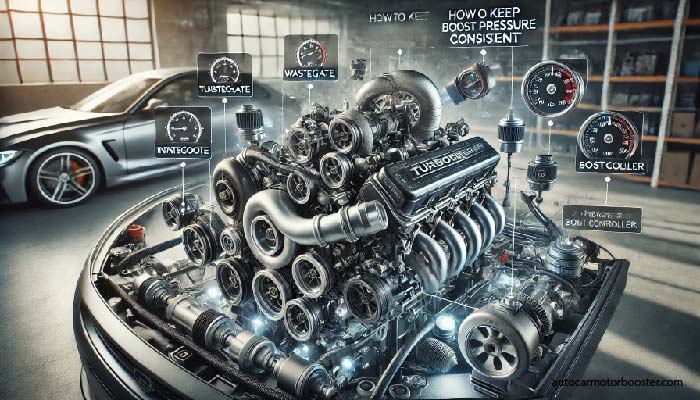A turbocharger is a valuable component that boosts your engine’s performance, making it a key feature for many performance vehicles. However, maintaining a turbo is essential for long-lasting performance. Proper care can save you costly repairs and keep your turbo working smoothly. Here are crucial maintenance tips to ensure your turbocharger performs well for years.
1. Regular Oil Changes
Oil is essential to turbocharger function, providing lubrication that reduces friction and wear. Make sure to use high-quality engine oil and change it according to your car’s maintenance schedule. Neglecting oil changes can lead to sludge build-up, which may damage the turbo.
2. Allow Proper Warm-Up and Cool-Down
Before pushing your car to high speeds, allow the engine to warm up for a few minutes. This helps the turbo reach optimal operating temperature, reducing wear. After a hard drive, avoid shutting off the engine immediately. Instead, let it idle for a couple of minutes, allowing the turbo to cool down naturally.
3. Check for Leaks Regularly
Oil leaks are among the most common issues affecting turbochargers. A small leak can quickly turn into a major problem, causing turbo failure. Inspect your engine bay for any signs of oil or coolant leaks and get them fixed promptly.
4. Use High-Quality Fuel
Low-quality fuel can create carbon deposits that clog the turbo, reducing performance. Opt for high-octane fuel that burns cleaner, enhancing turbo efficiency. Cleaner fuel helps the turbo operate smoothly without unnecessary build-up.
5. Clean or Replace the Air Filter
A dirty air filter restricts airflow, forcing the turbo to work harder. Replacing the air filter periodically ensures your turbo gets sufficient, clean air, allowing it to run efficiently. This small step can significantly improve the turbo’s lifespan.
6. Avoid Over-Revving
Many car enthusiasts enjoy pushing their engines, but over-revving puts excessive stress on the turbo. Try to avoid frequently revving the engine close to the redline, as it can cause premature wear on turbo components.
7. Inspect Turbo Hoses and Clamps
Loose hoses or clamps can lead to boost leaks, reducing turbo efficiency. Regularly inspect the hoses and clamps to ensure everything is tightly secured. If you notice any damage or wear, replace them to maintain optimal boost pressure.
8. Monitor Engine and Turbo Temperature
High engine temperatures can damage the turbocharger. Keep an eye on your car’s temperature gauge, and avoid driving if it shows signs of overheating. Additionally, consider using a turbo timer to manage temperatures better.
9. Invest in a Quality Boost Controller
A boost controller allows you to manage the turbo’s boost levels safely. Over-boosting can harm the turbo, so investing in a quality controller helps maintain boost levels within safe limits, extending turbo life.
10. Regularly Service the Turbo
Routine turbo service involves checking the turbo for wear, cleaning, and ensuring all connections are secure. A qualified mechanic can catch potential problems early, preventing costly repairs in the long run.
FAQs
- What type of oil is best for turbo engines?
Use high-quality synthetic engine oil with a high-temperature tolerance, which helps minimize friction in turbo engines. - How often should I replace my air filter for turbo maintenance?
For optimal performance, replace the air filter every 10,000-15,000 miles or as recommended in your vehicle’s manual. - Is warming up the engine necessary before driving?
Yes, allowing your engine to warm up helps the turbo reach a safe operating temperature, reducing wear. - What are common signs of turbo failure?
Common signs include reduced boost pressure, unusual sounds, and excessive smoke. If you notice these, have the turbo inspected. - Does fuel quality impact turbo longevity?
Absolutely. High-quality fuel prevents carbon build-up, ensuring the turbo remains clean and functional.
If Like This Article Visit Our Website. Collect From Wekiapedia
